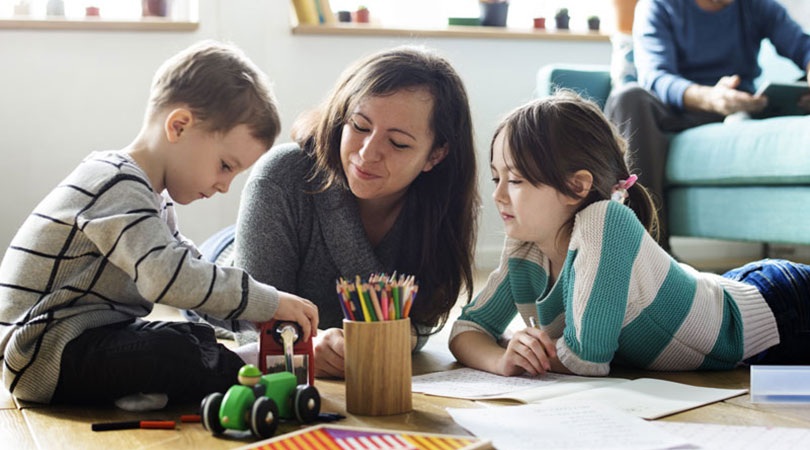Emotionless, Practice 7 Easy Ways to Educate Kids at Early Age
Educating children is not easy, especially when they are still at an early age such as kindergarten and elementary school. In order to keep control of your emotions when teaching children at home, consider the following seven easy ways.
Generally because the brain development of children aged 3-10 years is not perfect, they tend to be difficult to communicate with. Especially when accepting new things or whatever we are trying to teach them.
Sometimes parents respond to the behavior of their children in the golden period of growth which is often difficult to control and actively explores with little emotion. This is of course very likely to hinder the rate of mental development and behavior of children in the future.
Try to avoid educating children at an early age by getting angry, especially to the point of physical violence. Based on research conducted by Lise Elliot, a neurologist at Chicago Medical School, one snap can damage billions of children's brain cells. Don't let it happen, parents!
Educating Children with Love
One way to educate children to remain disciplined without their parents venting their emotions is to make rules for aggressive behavior, doing things that are dangerous, and preventing them from engaging in impolite behavior. Check out the full tips for educating children below:
1. Be Consistent
Always be consistent in everything that involves children. If the child sees parents who are inconsistent then the little one is confused. For example, if we have made it a habit for our children to get up early, then even on vacation they get used to getting up early. That way, the child will understand the values of discipline until he grows up.
2. Short and Solid Sentences
We can convey these values briefly and concisely without getting angry. Instead of emotions, try to give comforting advice and stimulate empathy for your child when he makes a mistake. An example of a directive sentence could be something like this, "Sister, you are gentle, yes, being hit hurts, you know, poor sister."
3. Show Good Behaviour
Basically, early childhood is a reliable imitator. They are quicker to imitate what their parents do, rather than understand the meaning of their parents' advice. Therefore, just set an example of a clean life at home, the children will follow suit. In this way, your little one can grow into a good person without coercion.
4. Better Mood of Mom and Dad
Don't allow children to feel the negative mood of their parents, because this can be transmitted to them. So make sure you are always in a good mood every time you accompany them to study. Then talk to her by looking her in the eye, and give directions using language that is straightforward but easy to understand.
5. Give Rest Time
Don't forget to provide breaks and rest time between children's learning activities. If they are too tired, of course they will not be able to accept the things they learn. You can also take them to a quieter place, give them time until they calm down and then give them another understanding of what they are doing.
6. Be a Loving Figure
The biggest desire of children is actually only one, namely to always receive love from their parents at all times. Not money, expensive toys, or branded clothes. Be a compassionate figure by trying to be patient and always be there for them. We can also manifest affection directly, by hugging him, saying the words "I love you", or asking him to play.
7. Often Give Praise
Don't forget to always give words of praise every time your child does something positive and something right. Even if it's just a word or two, or just tapping on the shoulder and hugging it can make your child feel more confident that they have the ability to do something well.
Those are 7 easy ways for parents to teach their children patiently and without emotion. However, if at one moment we unknowingly snapped at our little one, how do we fix it?
The effect of being yelled at certainly makes a child shocked and hurts his heart, sometimes even causing fear of his parents. On the other hand, we don't really mean to do that. Here are things we can do to fix it.
- Calm down, first before returning to interact with the child who just got angry. Make sure our emotions have subsided or gone, try to take a deep breath and then exhale slowly.
- Say sorry; to the little one. There is no need to be proud to apologize because this good attitude can also be imitated by the child in the future.
- Give understanding; when things start to get better. Explain what exactly you want to convey. If necessary, hug them and look the child directly in the eyes when talking heart to heart.
So, is this method of educating children at home useful for you? Family has always been the main foundation for children to grow and develop properly. Keep your spirits up!


